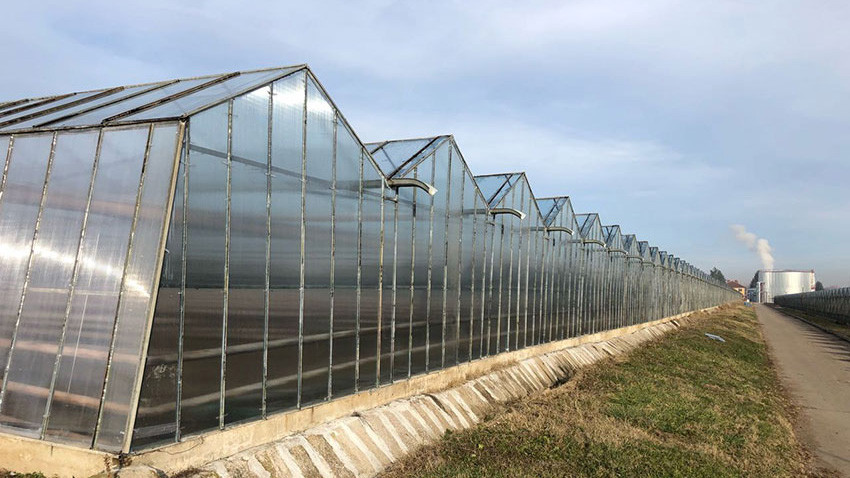Over 70% of Bulgarian greenhouses are heated by gas and currently the industry is on the verge of collapse. Greenhouses in Bulgaria have been closing en masse since November and foreign products have been conquering the market. At the moment there are no Bulgarian vegetables offered on the market and they are imported from Turkey, Greece, North Macedonia, Albania and Romania, according to the branch organization of greenhouse growers. It turns out that neighboring EU member states cover the needs of the Bulgarian market with their products. The reason is obvious - the governments in Greece and Romania have managed to support their farmers, while the Bulgarian population eats imported vegetables due to lack of such support for local producers.
"Each producer can show invoices and documents for the costs incurred, if the state wanted to help. It is high time we found the right mechanisms, so that we could work calmly and eat Bulgarian products," Teodora Krasteva, executive director of the Bulgarian Greenhouse Growers' Association that unites owners of 272.7 hectares of greenhouses, has told the BNR.
"The situation has become really bad due to the extraordinary jump in energy prices and rising costs for fertilizers and other products. We can open a closed greenhouse again but this depends on the costs of opening it. Bulgarian vegetables will emerge on the market by the end of April, but until then we will eat only imported ones. However, in April-May producers will face another problem - very high supply. I wonder how the farmers would be able to cover their costs as the price will go down because of high supply in spring.”

Greenhouse farmers estimate that expenditures have risen by 300 percent due to the gas price hike but this is not the only problem as they need to pay higher wages to workers. At the same time finding workers in the sphere of agriculture has become an increasingly difficult task.
"The other big issue is that there are no workers. When a business stays closed for 4 months and people have gone to the job market, you cannot expect them to come back. Of course, half of them would have gone abroad and there would be no one to work in the Bulgarian greenhouses in the spring. I am not talking only about specialists but also about general workers. Their role is very important in agriculture as they are people who know how to keep a plant healthy. They know the diseases caused by pests, bacteria, viruses, fungi. Their work is very interesting and requires a lot of knowledge."

The Bulgarian Greenhouse Growers' Association says that they could overcome the current stalemate only with government’s help. After unsuccessful attempts to negotiate with the government last year, farmers from various sectors had been invited for an introductory meeting with Minister of Agriculture and Food Ivan Ivanov on January 10.
Compiled by: Gergana Mancheva /based on an interview by Dorothea Nikolova from BNR-Varna/
English: Alexander Markov
Photos: BGNES, libraryAs of January 1, 2026, the minimum monthly wage should be 1,213 BGN (EUR 620.2), up from the current 1,077 BGN (EUR 550.66), said Luboslav Kostov, Chief Economist at the Confederation of Independent Trade Unions in Bulgaria (CITUB), in an interview..
Inflation in the EU in July reached 2.4% on an annual basis , according to Eurostat data. Regarding Bulgaria, European statistics report an increase in inflation to 3.4% in July this year compared to the same month last year. According to this..
For the period January-June 2025, the net flow of foreign direct investment in the country reached EUR 848 million (0.8% of GDP), which represents a decrease of EUR 31.4 million compared to the same period in 2024. In June 2025, the flow was negative..

+359 2 9336 661
